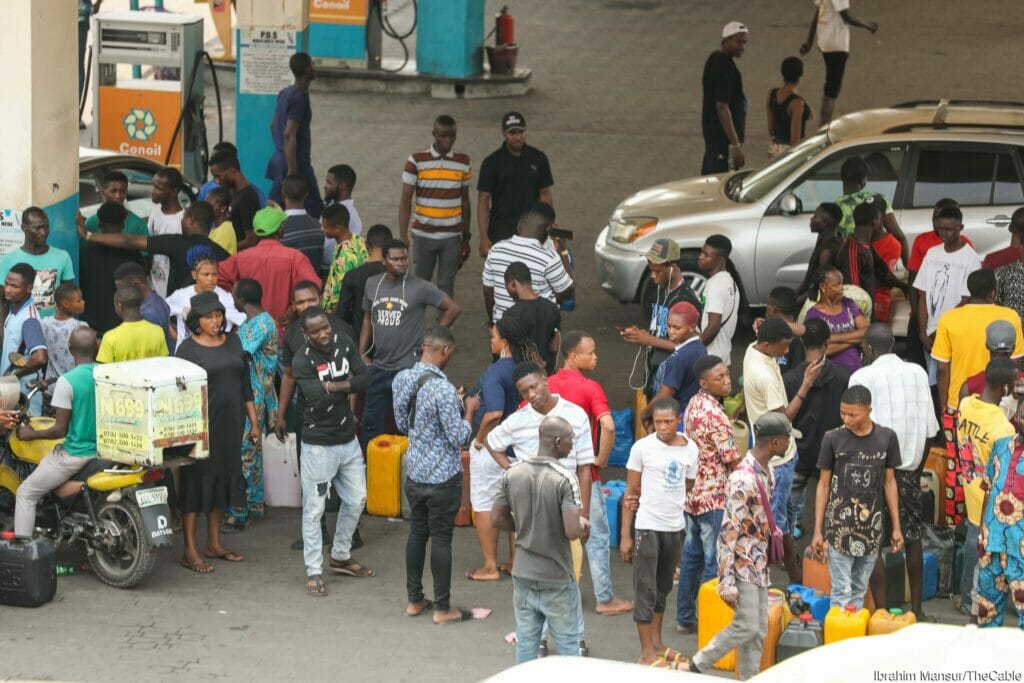- Nigerians are frustrated by a recent fuel price hike, with prices rising to N1,030 per liter in Abuja and N998 in Lagos
- Social media users express outrage over the fuel increase, criticizing the government for its lack of empathy towards citizens’ struggles
Nigerians are expressing frustration and dismay following the recent fuel price hike by the Nigerian National Petroleum Corporation Ltd. (NNPCL). The hike has seen the price of fuel soar to new highs, exacerbating concerns about the rising cost of living.
In Abuja, the nation’s capital, fuel prices have surged from N897 to N1,030 per liter. Similarly, in Lagos, prices have jumped from N885 to N998, leading to long queues at filling stations.
Many Nigerians have taken to social media to voice their grievances. On X (formerly Twitter), users expressed their outrage and concern about the price hike’s impact on their daily lives.
@rolandjick267 wrote: “How do we survive? This is becoming too much.”
@Sthabbey tweeted: “This situation is becoming unacceptable. Nigerians deserve respect from @officialABAT and his administration. This is unwarranted, and our patience has been stretched to its limit.”
@qudus_kalas commented: “At this point they should just throw an atomic bomb in the country and end it all.”
Other users voiced similar sentiments, criticizing the government for what they perceive as a lack of empathy for the suffering masses. @Abubakar_tatari stated, “It’s getting out of hand, no sympathy for the masses. This regime is just heartless.”
On Facebook, Abdullahi Bala Muhammad urged the government to take action, warning that poor Nigerians are being pushed to the brink. “If they push back, things won’t be good for the government,” he cautioned.
The price hike follows reports that NNPCL is no longer acting as a middleman in the Dangote Refinery fuel purchase deal, a move that many believe contributed to the recent increase in fuel prices. Despite the public outcry, the government has yet to respond to citizens’ concerns.
For now, many Nigerians are left wondering how they will cope with the continued rise in living costs and the burden placed on the nation’s most vulnerable.
